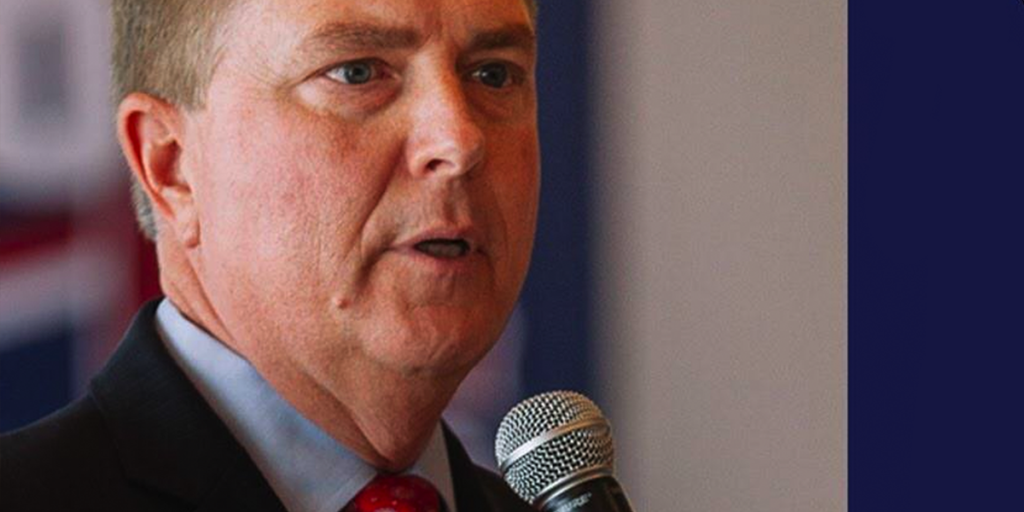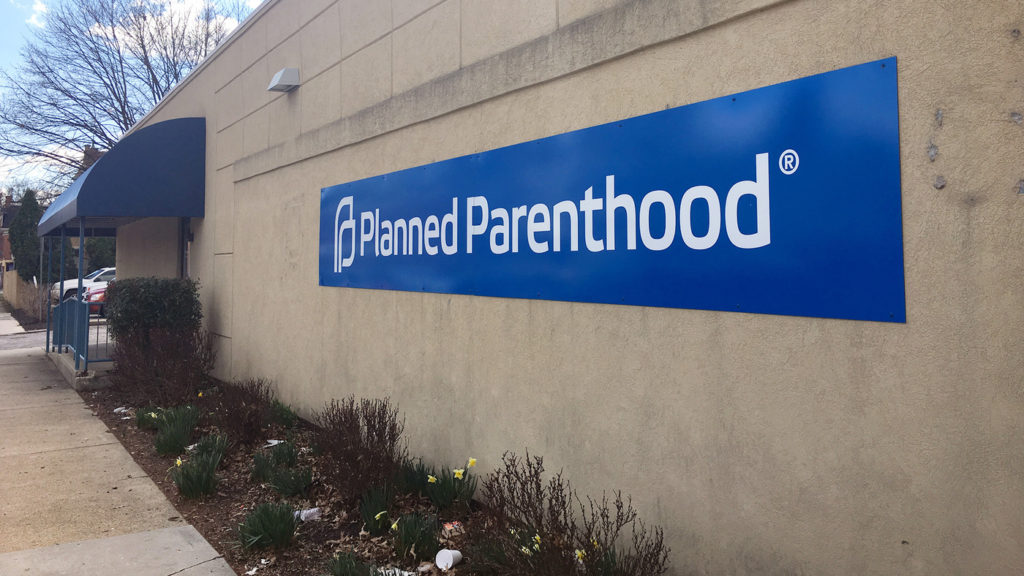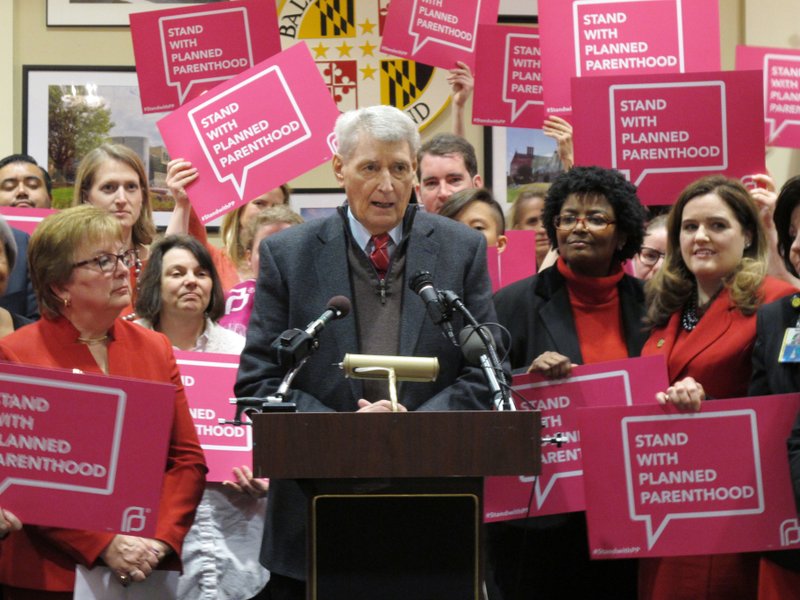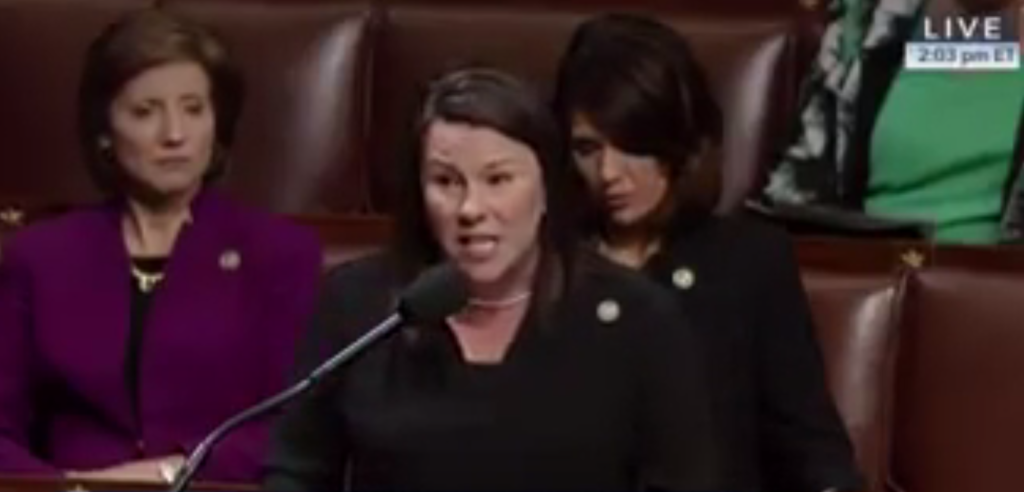Donald Trump wades deeper into abortion politics as midterms loom

President Donald Trump has long been an unlikely sweetheart for conservative and evangelical voters. Now, in the lead-up to the midterm elections, the thrice-married former Democrat who used to describe himself as “very pro-choice” is offering catnip to conservative voters with a new administration push to strip funding from Planned Parenthood and other family planning clinics. The initiative, announced last week, has arrived just in time for Trump to highlight it Tuesday night when he speaks at the Susan B. Anthony List’s annual “Campaign for Life Gala.” It is aimed at resurrecting parts of a Reagan-era mandate banning federally funded family planning clinics from referring women for abortions, or sharing space with abortion providers. Marjorie Dannenfelser, president of the anti-abortion Susan B. Anthony List, says the move “will help tremendously” in the midterm elections. It’s also the latest evidence that as he frets over the Russia investigation and prepares for a planned summit with North Korea, Trump has also been focused on fulfilling campaign promises and tending to issues that galvanize his base: holding a series of events to rail against the dangers of illegal immigration, pulling out of the Iran-nuclear deal and wading anew into the fight over abortion rights. Trump is far from a natural fit for conservative voters. He recently admitted to reimbursing his lawyer for paying pay hush money to a porn star who claimed she had sex with Trump (a charge that he denies). And Trump has bragged about groping women without their permission. During the campaign, he sometimes had trouble articulating his views on abortion, at one point suggesting women should be punished for having abortions. His campaign later walked back the statement, saying that if abortion were ever outlawed, he believed that doctors who perform them should be punished. Nonetheless, white evangelical voters overwhelmingly supported Trump in 2016, and that support has only grown. A PRRI survey released last month found white evangelical support for Trump at an all-time high, with 75 percent of those polled holding a favorable view of the president and just 22 percent holding an unfavorable view. Support for Trump within the general population in the poll stood at just 42 percent. Religious groups like the Catholic Medical Association approve of a series of actions Trump has taken, beginning with his appointment of judges who oppose abortion rights, including Supreme Court Justice Neil Gorsuch, and Trump’s reinstatement of the global “gag rule” that bars federal funding for nongovernmental organizations that provide abortion referrals. Trump has also surrounded himself with staffers with deep ties to conservative groups, including counselor Kellyanne Conway and Director of Strategic Communications Mercedes Schlapp. Ralph Reed, chairman of the private Faith & Freedom Coalition, also pointed to the president’s dismantling of the Iran nuclear deal and his decision to move the U.S. Embassy in Israel from Tel Aviv to Jerusalem as steps that have played especially well with evangelical voters. But he said the president’s actions on abortion hold special sway, in part because of Trump’s early struggle with the issue. “On a policy level, I see it as a series of promises made and promises kept. And in this case, a pro-life promise made and pro-life promise kept. And I would argue those are the most important promises to keep because he was someone who was believed, accurately or otherwise, as a recent arrival to conservatism and someone who had an ideologically mixed past,” Reed said. Reed added that as president, “Trump has done everything that he can to keep faith with the faith-based voters that provided him with his margin of victory in 2016.” When it comes to the midterms, Reed said, “I expect Donald Trump to be rewarded for these efforts by a similarly historic turnout among evangelical and other pro-life voters.” Dannenfelser, whose group works to elect candidates who want to reduce and ultimately end abortion, is planning to raise and spend $25 million this cycle, up from the $18 million the group spent in the lead-up to the 2016 elections. She said the president’s latest move would play especially well with voters in states like Missouri, where Republican Attorney General Josh Hawley is challenging Democratic Sen. Claire McCaskill, one of the Senate’s most vulnerable incumbents, as well as in Indiana and North Dakota, where Republican Rep. Kevin Cramer is challenging Democratic Sen. Heidi Heitkamp. “He has proved himself refreshingly predictable,” Dannenfelser said of Trump’s record on abortion issues. The other side, meanwhile, is preparing for a potential legal fight against Trump’s latest action and aiming to build support for candidates who support abortion rights. “We have to fight back in the best way we know how,” the group Emily’s List wrote in a fundraising email, “electing pro-choice Democratic women who will always protect reproductive freedom.” Republished with permission from the Associated Press.
Donald Trump to deny funds to clinics that refer for abortion

The Trump administration will resurrect a Reagan-era rule that would ban federally funded family planning clinics from referring women for abortions, or sharing space with abortion providers. The Department of Health and Human Services will announce its proposal Friday, a senior White House official said Thursday, speaking on condition of anonymity because the official was not authorized to confirm the plans before the announcement. The policy has been derided as a “gag rule” by abortion rights supporters and medical groups, and it is likely to trigger lawsuits that could keep it from taking effect. However, it’s guaranteed to galvanize activists on both sides of the abortion debate ahead of the congressional midterm elections. The Reagan-era rule barred family planning clinics from discussing abortion with women. It never went into effect as written, although the Supreme Court ruled that it was an appropriate use of executive power. The policy was rescinded under President Bill Clinton, and a new rule went into effect that required “nondirective” counseling to include a range of options for women. According to a Trump administration summary, the new proposal will roll back the Clinton requirement that abortion could be discussed as an option along with prenatal care and adoption. Abortion is a legal medical procedure, but federal family planning funds cannot be used to pay for abortion procedures. Abortion opponents say a taxpayer-funded family planning program should have no connection to abortion. Doctors’ groups and abortion rights supporters say a ban on counseling women trespasses on the doctor-patient relationship. “The notion that you would withhold information from a patient does not uphold or preserve their dignity,” said Jessica Marcella of the National Family Planning & Reproductive Health Association, which represents family planning clinics. “I cannot imagine a scenario in which public health groups would allow this effort to go unchallenged.” She said requiring family planning clinics to be physically separate from facilities in which abortion is provided would disrupt services for women across the country. But Kristan Hawkins of Students for Life of America said, “Abortion is not health care or birth control and many women want natural health care choices, rather than hormone-induced changes.” Abortion opponents allege the federal family planning program in effect cross-subsidizes abortion services provided by Planned Parenthood, whose clinics are also major recipients of grants for family planning and basic preventive care. Hawkins’ group is circulating a petition to urge lawmakers in Congress to support the Trump administration’s proposal. Known as Title X, the nation’s family-planning program serves about 4 million women a year through clinics, at a cost to taxpayers of about $260 million. Planned Parenthood clinics also qualify for Title X grants, but they must keep the family-planning money separate from funds used to pay for abortions. The Republican-led Congress has unsuccessfully tried to deny federal funds to Planned Parenthood, and the Trump administration has vowed to religious and social conservatives that it would keep up the effort. Republished with permission from the Associated Press.
Scott Dawson calls for investigation of all Alabama abortion clinics

Gubernatorial candidate Scott Dawson called for the investigation of all Alabama abortion clinic’s on Friday; after it was reported that a Montgomery abortion clinic failed to report potential sexual abuse 13 year-old patient. According to AL.com, the girl first visited the clinic in January 2016 and gave the clinic a birth date in July 2000, which would have made her 15. Two weeks later when she returned to have the abortion she brought her birth certificate showing that she was born in July 2002, meaning she was actually 13 at the time the abortion was performed. The girl had a second abortion in April of 2017, when she was 14 years old. In January of this year, the Alabama Department of Public Health (ADPH) sent an inspector to interview the director of the clinic who verified the information and only reported the patient and both abortions to ADPH after the inspection. The clinic has since provided the ADPH with a complete correction plan to revise how it obtains and reviews information from minors. “The news coming out of Montgomery breaks my heart and the apathy exhibited by our Montgomery politicians is angering,” declared Dawson. “When a 13-year-old child—with non-English speaking parents—is given an abortion, without a third-party counselor and no suspicion of sexual abuse and no report, we know Montgomery needs new leadership. Where is law enforcement? If this were a public school employee who had failed to report potential sexual abuse, they would be without a job and under investigation.” Dawson said as Governor he will immediately call for a full investigation of all abortion clinics across the state. “As Governor, I will immediately call for full investigation of all abortion clinics in the State of Alabama and at minimum, I will see to it that the Department of Public Health is held accountable to enforce their own rules, and that entities operating like this will be closed,” explained Dawson. “In Alabama, we treasure all human life—the born, the unborn, and certainly 13-year-old children who may need to be rescued from an abusive situation. Just because a clinic can legally murder, doesn’t mean they get a pass on the laws of this state.” Dawson faces Incumbent governor Kay Ivey, Huntsville mayor Tommy Battle, and State Sen. Bill Hightower in the June 5 Republican primary.
State appeals court’s abortion ruling for Alabama minors

Federal judges on Tuesday will hear arguments of appeal for an Alabama abortion law that was reversed. The overturned law allowed a judge to appoint a lawyer for the fetus of a minor mother seeking an abortion through a trial-like process. Current law requires un-emancipated minors to have the permission of her parent or guardian to have an abortion. But in this case, the minor petitioned a juvenile court for a judgment waiving the requirement of parental consent to allow her to have an abortion. This law allowed a judge in one case to appoint a lawyer for the minor’s fetus and authorized the district attorney to call witnesses to decide whether the minor was mature and well-informed enough to make the decision get an abortion, and that performance of the abortion would be in her best interest. In 2014, a Montgomery abortion clinic sued the state claiming the process burdened the minor and violated her confidentiality, and in July of 2017, a federal judge struck down the law. In September of 2017, the Alabama Court of Civil Appeals said that the judge wrongly blocked the minor’s abortion. Saying that the judge misapplied the law and thus reversed the decision. “The juvenile court’s judgment is reversed, and this court hereby renders a judgment granting a statutory waiver of parental consent,” read the opinion of the Court of Civil Appeals. In response, the state in October appealed the court’s decision saying the regulatory law does not keep minors from getting abortions in their best interests.
Martha Roby: It’s about time

Congress was recently informed by Department of Justice officials of their intention to follow up on calls to investigate the appalling practice of abortion providers harvesting and trafficking fetal organs for profit. It’s about time. As you may remember, in July of 2015, senior Planned Parenthood officials were caught on camera discussing how abortion procedures could be systematically altered in order to preserve certain organs so they could be sold to researchers. One described in disturbing terms how a person performing an abortion could “crush” here and “crush” there, being careful to preserve certain body parts because they are valuable on the research market. Another discussed developing a kind of menu for organs and how lucrative these arrangements could be. It was sick, callous, and completely inhuman. It also happens to be against the law. The purchase and sale of human fetal tissue is prohibited by federal law, as is altering the timing or method of an abortion to gain material for research. Planned Parenthood has claimed that its abortion clinics only collect “tissue” legally for research purposes and that any payments are simply cost reimbursements. However, the menu and price scheme discussed on camera strongly suggest a competitive market at play, and it was clear that officials were willing to alter abortion procedures in order to preserve certain in-demand organs. Planned Parenthood also later reversed its policy and stopped clinics from accepting payments for tissue – a change that seems unnecessary if they weren’t doing anything wrong. Several of my colleagues and I immediately called for an investigation into these disturbing revelations. Unfortunately, our demands fell on deaf ears. Even after multiple congressional committees referred their own investigations to the authorities at the Department of Justice, then-Attorney General Loretta Lynch declined to pursue an investigation. At the time, I said it was disappointing, but hardly surprising. It’s no secret that Planned Parenthood throws around considerable political weight in Washington. In this country, no one is above the law. That’s why I was so very pleased to receive word that the Department of Justice, now under the leadership of Attorney General Jeff Sessions, appears to be following up on the evidence and taking our calls for an investigation seriously. In a letter to the Senate Judiciary Committee, Assistant Attorney General Stephen Boyd, who I’m proud to say was formerly my Chief of Staff, requested un-redacted documents from the Committee’s investigation into the suspected harvesting and trafficking of fetal tissue. Assistant Attorney General Boyd said for now the documents are being used for investigative purposes only, and a formal resolution may be required for further proceedings, such as a grand jury. I appreciate the Department’s attention to this matter, and I can say for certain that I won’t be the only one watching this closely. When the terrible videos first surfaced in 2015, I went directly to the House floor and spoke out to raise awareness about this outrageous activity. Someone later told me that I was the first person to speak on the floor about the scandal. Let me be clear: If I have to, I will be the last. I said then, “I promise… we are not done talking about this.” I am pleased that with the new leadership at the Department of Justice, that has proven to be true. I’ll keep you informed as we learn more about this investigation. ••• Martha Roby represents Alabama’s Second Congressional District. She lives in Montgomery, Alabama with her husband Riley and their two children.
Federal court clears way for immigrant teen to get abortion

A U.S. appeals court has cleared the way for a 17-year-old immigrant held in federal custody to obtain an abortion. The ruling Tuesday by the full U.S. Court of Appeals for the District of Columbia Circuit overruled a decision by a three-judge panel of the court that at least temporarily blocked the teen from having the procedure. The panel ruled Friday that the government should get more time to try to release the teen, who is being held in a Texas facility, so she could obtain the abortion outside government custody. The panel ruled 2-1 that the government should have until Oct. 31 to release the girl into the custody of a so-called sponsor, such as an adult relative in the U.S. The teen could then obtain the procedure. Republished with permission from the Associated Press.
Bradley Byrne: A pro-life victory

A few weeks ago, I met a remarkable young boy named Micah. Micah is a five-year-old boy who seems like most any child. He is healthy, smart, and full of life. Most people are shocked when they learn that Micah was born at just 22 weeks. When Micah was born prematurely, he was no bigger than a pack of M&Ms, but his mom said he was “alive and he was fighting and he wanted to live.” Thankfully, due to the miraculous work of doctors and answered prayers, Micah survived. Every child deserves the chance Micah had. Sadly, the United States is one of only seven countries in the world that allows elective abortions after 20 weeks of pregnancy. This radical policy puts us among the likes of North Korea and China. Micah’s mother likely put it best when she said that her “heart is grieved that babies are allowed to be aborted at the same age that my own son was born and even later.” It is simply heartbreaking. Well, I recently voted to change the law and ban abortions in the United States after 20 weeks. Thankfully, the Pain-Capable Unborn Child Protection Act, also known as Micah’s Law, passed the House by a vote of 237 to 189. The bill now awaits action in the Senate. This is a commonsense, pro-life bill that simply states that abortions after 20 weeks are unlawful in the United States. The bill does include very limited exceptions in cases of rape, incest, or when the health of the mother is at risk. To be clear, I do not support abortion at any point, but there is great significance to the 20-week timeframe. Twenty weeks is the point at which doctors and scientists agree that babies can actually feel pain. The more premature an infant is, the worse the pain because they have yet to develop pain inhibitors. Sadly, thousands of babies right here in the United States are killed and subjected to excruciating pain due to late-term abortions. It is simply unconscionable. That is why this legislation is so critically important. We shouldn’t stop with Micah’s Law. As a member of the House Pro-Life Caucus, I am always looking for new opportunities to stand up for the unborn. For example, I am a staunch supporter of the Hyde Amendment, which is a provision included in annual government funding bills to ensure no taxpayer money is used to perform an abortion. I have also supported legislation to make the Hyde Amendment permanent, so it no longer must be passed each year. I also previously voted to eliminate funding for Planned Parenthood, an organization that promotes abortions. I support redirecting the money away from Planned Parenthood and putting it toward community health centers, which are more plentiful and provide a wider range of services. These are just a few examples. As I cast my vote in favor of the Pain-Capable Unborn Child Protection Act a few weeks ago, Micah was on my mind. I thought about his smile and how he was full of energy. I thought about others like him who may have been given a chance at life were it not for our nation’s broken laws As is written in Jeremiah 1:5, “Before I formed you in the womb I knew you, before you were born I set you apart.” I promise to always stand up for God’s precious gift of life and to support pro-life policies throughout my time in Congress. • • • Bradley Byrne is a member of U.S. Congress representing Alabama’s 1st Congressional District.
Alabama Court of Civil Appeals says judge wrongly blocked minor’s abortion

The Alabama Court of Civil Appeals on Thursday overruled a lower court judge who refused to give a minor permission for an abortion despite finding she was “sufficiently mature” enough to make the decision. Alabama law requires unemancipated minors must have the permission of her parent or guardian to have an abortion. In this case, the minor petitioned a juvenile court for a judgment waiving the requirement of parental consent to allow her to have an abortion. The juvenile court conducted a hearing and on August 16, 2017, the court entered a judgment denying the minor’s petition. She appealed. The appellate court said the judge misapplied the law and thus reversed the decision. “The juvenile court’s judgment is reversed, and this court hereby renders a judgment granting a statutory waiver of parental consent,” read the opinion of the Court of Civil Appeals.
Abortion issue dents Dems effort to promote next generation

Democrats desperate for fresh faces cast 37-year-old Heath Mello as a pragmatic, next-generation leader who could win in the Nebraska heartland. Yet his anti-abortion stance has become a flashpoint for the national party. If Mello prevails on Tuesday in his bid for Omaha mayor, it’s a promising sign, he says, for a candidate “with a proven record of working bipartisan and tackling some big issues and, yes, to some extent, is a pro-life Catholic Democrat.” He is challenging Republican incumbent Jean Stothert. Mello’s bid has exposed the cultural divisions within the party over the decades-old issue of abortion. It’s also proved a major embarrassment for the new party chairman, Tom Perez. Top Democrats had planned a stop in Omaha at a rally for Mello, but abortion rights groups were outraged. National Abortion and Reproductive Rights Action League President Ilyse Hogue called the DNC’s promotion of Mello “not only disappointing, it is politically stupid.” Caught off-guard, Perez reversed himself, saying “every Democrat, like every American, should support a woman’s right to make her own choices,” and called on Democrats to speak with “one voice.” They didn’t. At the April 20 rally in Omaha, Sen. Bernie Sanders, the Vermont independent who sought the Democratic presidential nomination last year, endorsed Mello and asked, “Omaha, are you ready for a political revolution?” Perez, who had been scheduled to attend, instead campaigned for a Georgia candidate. The party chairman’s actions angered several moderate Democrats and frustrated others as the party struggles for relevance. In the last decade, Democrats have lost about 1,000 elected posts from the White House to Congress to the 50 statehouses, a power deficit the party has not seen nationally in 90 years. In Nebraska, where Republicans control every congressional and statewide office, Democrats don’t have the luxury of being choosy, Mello supporter Abbie Raikes said. “As liberals in Nebraska, you become accustomed to making compromises,” said Raikes, a 45-year-old public health professor at University of Nebraska Medical Center in Omaha. Raikes, talking with Mello in her near-west Omaha neighborhood last week, supports him in part for plans to promote affordable housing, not because he backed a half-dozen abortion restrictions during eight years in the legislature. After all, the highest-ranking Democrat outside of the state legislature is the mayor of Lincoln. Democrats must invite new faces with diverse viewpoints into its leadership, said Rep. Tim Ryan of Ohio, who described Perez’s reaction to Mello as “really damaging.” “Requiring everybody to fit some purity test is a recipe for disaster,” said Ryan, who unsuccessfully challenged Rep. Nancy Pelosi for House Democratic leader last year. “There are going to be people who are Democrats who may not check all the boxes. But they are with you 80 percent of the time and can win in tough places.” Anti-abortion Democrats have almost disappeared in Congress. Only three senators fit the description, and all three — Bob Casey of Pennsylvania, Joe Donnelly of Indiana and Joe Manchin of West Virginia — are up for re-election next year in states President Donald Trump won in 2016. Pelosi last week told The Washington Post that abortion should not be a litmus test for Democrats. In the state legislature, Mello represented an older, ethnically diverse, working-class district in south Omaha, a few miles from the nation’s onetime railroad and meatpacking epicenter. But Mello has projected what he calls a “pro-growth, progressive, future-focused” style, which reflects Omaha’s moderate tendency. He favors a government partnership with private industry, a concept often associated with Republicans, for Omaha’s crumbling streets. He also has campaigned heavily in Omaha’s troubled north side, where most of the city’s homicides occur. Mello’s campaign fundraising co-chairwoman, Andy Holland, is the past president of Planned Parenthood of Nebraska. The aspiring mayor also has the support of self-described conservative Mike Kozlik, a lawyer who met Mello last week as the candidate strolled door-to-door through the elegant Dundee neighborhood west of downtown. “Too often Democrats want to coddle people. Mello comes from working stock,” said Kozlik, 64, a south Omaha native whose family struggled during his youth. “He understands the working man.” A Democratic mayor could give the party a leg up in Nebraska’s 2nd Congressional District, more than two-thirds of which is in Omaha, as the party hopes to claw its way back to the majority next year. And in a state that apportions its presidential electoral votes by congressional district, the mayor’s office could be an important Democratic foothold. Democrat Barack Obama carried the district in 2008, but lost it in 2012, as did 2016 Democratic presidential nominee, Hillary Clinton. Republished with permission of The Associated Press.
Pre-abortion sonogram bill delayed in Alabama Senate

A controversial piece of legislation was delayed in the Alabama Senate Health Committee on Wednesday SB 272, the Ultrasound Access Act, was scheduled for a public hearing, and has yet to be rescheduled. The measure would require a woman seeking an abortion to get a sonogram two days before the scheduled procedure and listen to a detailed, verbal description of the development of the fetus including an “audible heartbeat if present.” Additionally, a woman could receive a free sonogram image upon request. Sponsored by Tuscaloosa-Republican Rep. Gerald Allen, the bill also requires doctors to say how much they are paid for the abortion procedure. Calling it a “Conflict of Interest Disclaimer” the legislation endeavors to let the mother knows how much money the doctor will lose if the she chooses to opt out of the abortion. A federal appeals court blocked a similar law in North Carolina in 2014, and just law week a similar bill in Indiana was blocked by a federal judge on the grounds that it creates a “clearly undue” burden on women.
Some Democratic lawmakers seek to protect Planned Parenthood, abortion coverage

Even with the Republican failure to repeal Barack Obama‘s health care law, Democratic lawmakers in some states are pressing ahead with efforts to protect birth control access, Planned Parenthood funding and abortion coverage in case they are jeopardized in the future. Republicans in the U.S. House of Representatives withdrew a bill last week that would have repealed Obama’s Affordable Care Act. It would have halted federal funding for Planned Parenthood and curtailed the ability of many low-income women to obtain affordable birth control. Despite that setback for the GOP, several Republicans said Congress might revisit health care in the future, and anti-abortion leaders have stressed they will not abandon their campaign to defund Planned Parenthood. The group is the No. 1 abortion provider in the U.S. but also offers extensive birth control and health-screening services. In Nevada, state lawmakers and health advocates say they will continue to promote bills that would allow women to access 12-month supplies of birth control and require all health insurers to cover contraceptives at no extra charge, regardless of religious objections. Another Nevada proposal seeks to provide alternative funding to help organizations such as Planned Parenthood. Some government-run clinics that rely on federal grants and are on the brink of closure also would benefit. “Nevadans need these protections regardless of what’s happening in Congress,” said Elisa Cafferata, president of Nevada Advocates for Planned Parenthood Affiliates. “Family planning and preventive health care are still very much threatened.” Democratic state Sen. Julia Ratti said it was important to establish protections in state law “so that, regardless of what future federal provisions come through, we know we’re doing the right thing in Nevada.” It’s unclear whether Gov. Brian Sandoval, a Republican, will sign or veto the bills if they reach his desk. Majority Democrats in the Maryland Legislature, with backing from some Republicans, plan to continue work on a bill that would maintain family planning services provided by Planned Parenthood if the group ever lost federal funding. The measure, which has cleared the House of Delegates and is now pending in the Senate, would direct $2 million from Maryland’s Medicaid budget to family planning, as well as $700,000 from the state’s general fund. The bill’s chief sponsor, state Delegate Shane Pendergrass, said Maryland would be unwise to assume that congressional Republicans were finished with efforts to repeal the Affordable Care Act. “Could this come back in six months? Maybe,” she said. “Do we want to make sure we’re prepared if something happens? You bet we do.” In Oregon, Democratic state Rep. Jeff Barker said deliberations would continue on a bill he is sponsoring that would require health insurers to cover a full range of services, drugs and products related to reproductive health, including contraceptives, with no co-pay or deductible. It also would ban any government interference in a woman’s choice to have an abortion. “It will be contentious, but I believe it will pass,” Barker said. “We want to be sure that women have all their reproductive health needs taken care of.” The bill, which is awaiting referral to a House committee, could be up for a floor vote sometime next month. “Our plan is to still move it forward,” said House Speaker Tina Kotek, a Democrat. “It’s really important to a lot of people on this particular area of health care.” Kotek also expressed no interest in tweaking the bill’s language to the liking of Providence Health Plans, a Catholic-sponsored organization currently covering 260,000 Oregonians. Last week, Providence threatened to pull out of the Oregon insurance market if the abortion proposal passes. At the national level, Planned Parenthood celebrated the collapse of the GOP health care overhaul effort, yet acknowledged that it will remain a target of the anti-abortion movement and its allies. “We know this is the beginning, not the end,” said Planned Parenthood’s president, Cecile Richards. Federal law already prohibits federal money from being used to pay for most abortions, but the now-abandoned GOP health overhaul would have cut off more than $400 million in Medicaid reimbursements and other federal funding to Planned Parenthood for non-abortion services. That includes birth control provided to about 2 million women annually. Kristi Hamrick of Americans United for Life, in an email, said the push to defund Planned Parenthood would continue. “Too early to say how this might play out,” she wrote. Republished with permission of The Associated Press.
Martha Roby urges colleagues to strike “Obama’s Parting Gift to Planned Parenthood”

On Thursday, the U.S. House of Representatives passed a resolution that would overturn a last-minute Obama Administration rule designed to prevent states from defunding Planned Parenthood, but not before Alabama 2nd District U.S. Rep. Martha Roby made an impassioned plea to her colleagues to do so. Speaking on the House floor, Roby voiced her ardent support for House Joint Resolution 43, which would nullify a December 2016 Department of Health and Human Services rule mandating no state stop Title X public health dollars from flowing to abortion providers. “Congress must use its authority to strike this rule and stop the federal government from forcing states to funnel taxpayer money to abortion providers,” Roby said the House floor. “For Washington to attempt to coerce states into spending their federal dollars in certain ways is bad enough, but the fact that the Obama Administration circumvented Congress with this last-minute rule is outrageous.” Roby, who has long been outspoken about the need to stop taxpayer dollars from funding abortion clinics, offered her strong support for the measure to disapprove the Obama Administration rule, saying it is wrong on both process and policy. Roby explained Federally Qualified and Rural Health Centers are more plentiful and offer a wider range of services than abortion providers like Planned Parenthood. Noting that states have “every right” to redirect their Title X public health dollars to these non-controversial clinics. “If the true goal here was to ensure women’s health care, nobody should have a problem with that, but that wasn’t the goal, and everybody knows it. This rule is known as ‘President Obama’s parting gift to Planned Parenthood’ for good reason. It was a blatant attempt to preserve the pipeline of funding to the nation’s largest abortion business, and it was wrong.” HJ. Res. 43 was passed by the House of Representatives by a vote of 230-188. Watch Roby’s full speech below:


